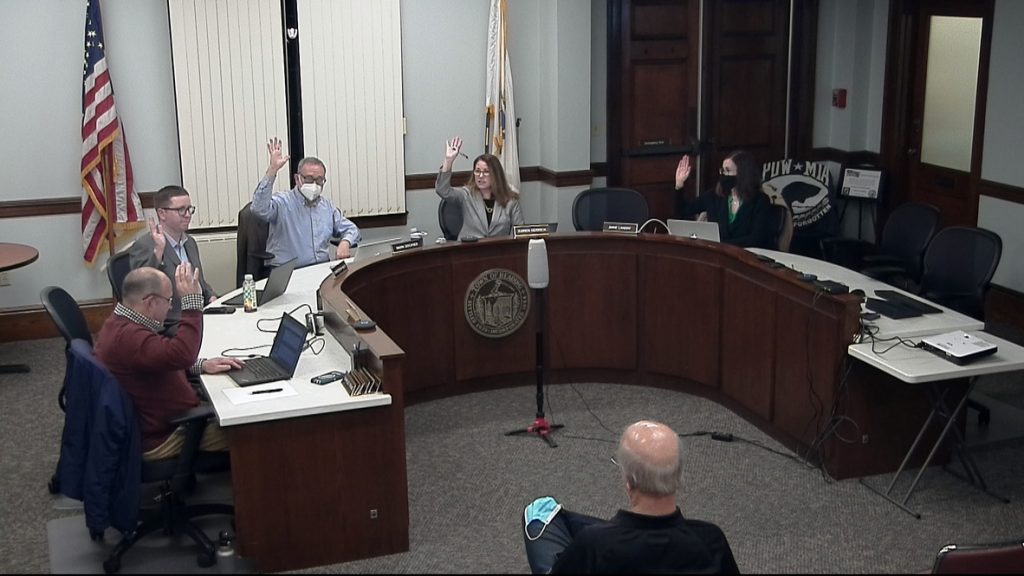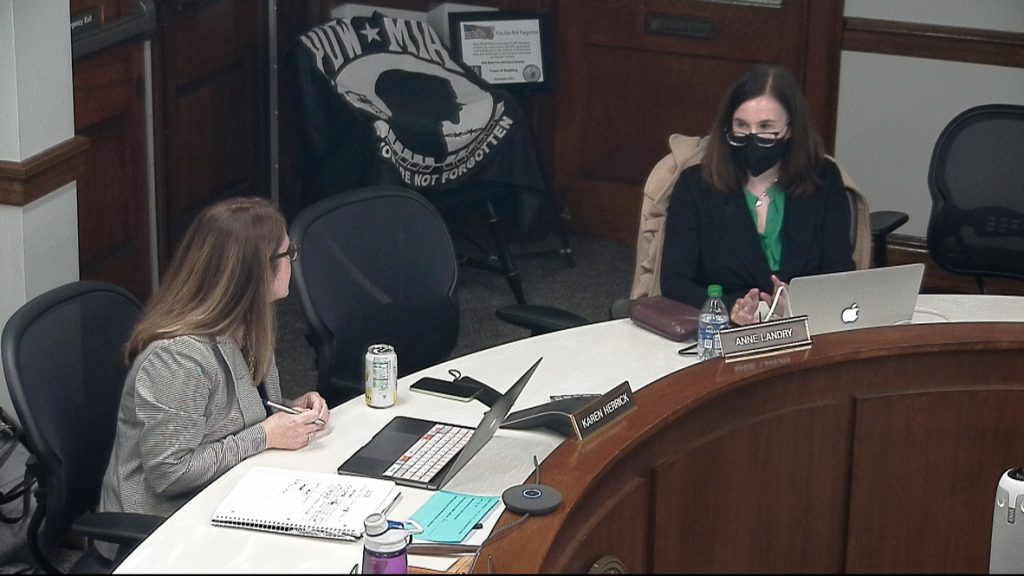Reading, MA — Reading Municipal Light Department (RMLD) General Manager Colleen O’Brien, Director of Integrated Resources Greg Phipps, and chair of the RMLD Board of Commissioners Robert Coulter presented an update to the Select Board on various issues, including rates and sustainability efforts on Tuesday. Though the Board of Commissioners has not yet voted on rate changes, O’Brien shared that she expects rates to increase from between 2.2% for schools to 4.7% for some residential customers, effective in January. “The climate bill has fundamentally changed the power landscape and will drive up the price of electricity,” Phipps explained.

Coulter explained that RMLD has a goal of zero-carbon energy sourcing by 2050, with a benchmark of only 50% carbon-producing energy sourcing by 2030. “The plan is to reduce [carbon sourcing] by small bits year after year,” Coulter added. He also said that customers who want to go “all-green” could opt into a renewable-sources-only plan earlier than 2030 if they so desired.
Phipps continued sharing that through long-term energy supply contracts, RMLD would meet the goals set for it by the climate bill. “RMLD has the size and scope to be able to look forward,” Phipps explained. He also reported that RMLD would be looking to invest in its own power generation, primarily using solar. Phipps continued, sharing that electricity sourced through natural gas would gradually be phased out. Currently, 60% of RMLD’s electricity comes from natural gas.

“Our goal is to meet the demands of the climate bill and to provide competitively priced power for our customers,” Phipps concluded.

The Select Board voted 5-0 to execute fifteen-year licenses with RMLD to place electric vehicle charging stations in the depot area and the parking area on Main Street off Haven Street, near Christopher’s restaurant. Select Board member Chris Haley, while in favor of EV charging stations, questioned the placement of the stations in a primary downtown parking area. “I find it hard to believe that EV is going to drive traffic to Christopher’s,” Haley explained. Select Board chair Karen Herrick disagreed with Haley, stating that those looking to charge their EVs will stop and utilize Reading’s downtown. Select Board member Mark Dockser agreed with Herrick, “We are taking a step forward with this and creating a couple of destination locations,” Dockser opined.
David Zeek, chair of the Climate Advisory Committee, presented a proposal that a “placeholder” be added to the Fiscal Year 2023 budget for a Sustainability Director for the town. Zeek explained this director would be a clearinghouse for sustainability efforts in town.
Responsibilities could include grant writing for sustainability projects, inventorying municipal buildings for ways to increase efficiency, encouraging upgrades to those facilities that would enhance sustainability, and working on efforts to increase residential acceptance of newer green technologies in their homes.
Zeek continued sharing that the state has a goal of 1,000,000 homes converted to electric heat by 2030, with 750,000 zero-emissions vehicles on the roads in the same time frame. He added that there is “significant funding available” to communities to help make this happen.
Zeek suggested that a “forward-thinking manager who desires to be at the forefront of creating a low-carbon, sustainable community with measurable reductions in greenhouse gas emissions across all sectors of the economy” could help with these transitions. He continued, sharing that he believes this director would have cross-departmental responsibilities and report to the town manager.

Select Board member Anne Landry questioned where this position would fall in the current organizational chart and wondered what other municipalities were doing to secure this type of grant funding. Select Board member Carlo Bacci stated that he, in principle, liked the idea but that some specifics of the proposal need to be ironed out before placement in the budget. He described the idea as “a position that will not only help the town but will generate a lot of grant funding.” The Select Board will begin its FY 2023 budget reviews on December 8.
The Board also voted 5-0 to extend the mediation process with resident Walter Tuvell to his tenth filed open meeting law complaint but chose not to agree to his desire to edit the minutes of the meeting or add an addendum to the minutes of the proceeding. Haley noted, “We voted to do this in executive session, and we should follow the rules of executive session.”
The Select Board adjourned at 10:50 pm.
